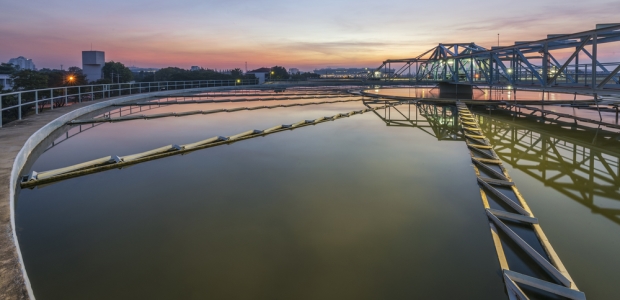
Four Effective Processes to Treat Wastewater
Wastewater has a lot of impact on the natural world and it is important to treat it effectively. By treating wastewater, you don't just save the creatures thriving on it, but also protect the planet as a whole.
Our modern lifestyle provides us the luxury of using various products to make our lives more comfortable and easy, but it comes at a price. A common byproduct of our current lifestyle includes wastewater, which can either be in the form of water running down the shower or runoff from wet roads. This wastewater is unfit for human consumption or use.
Fortunately, we can make the wastewater potable and usable by employing wastewater treatment technologies that filter and treat the wastewater by removing contaminants such as sewage and chemicals.
Four common ways to treat wastewater include physical water treatment, biological water treatment, chemical treatment, and sludge treatment. Let us learn about these processes in detail.
Physical Water Treatment
In this stage, physical methods are used for cleaning the wastewater. Processes like screening, sedimentation and skimming are used to remove the solids. No chemicals are involved in this process.
One of the main techniques of physical wastewater treatment includes sedimentation, which is a process of suspending the insoluble/heavy particles from the wastewater. Once the insoluble material settles down at the bottom, you can separate the pure water.
Another effective physical water treatment technique includes aeration. This process consists of circulating air through the water to provide oxygen to it. Filtration, the third method, is used for filtering out all the contaminants. You can use special kind of filters to pass the wastewater and separate the contaminants and insoluble particles present in it. The sand filter is the most commonly used filter. The grease found on the surface of some wastewater can also be removed easily through this method.
Biological Water Treatment
This uses various biological processes to break down the organic matter present in wastewater, such as soap, human waste, oils and food. Microorganisms metabolize organic matter in the wastewater in biological treatment. It can be divided into three categories:
- Aerobic processes: Bacteria decomposes the organic matter and converts it into carbon dioxide that can be used by plants. Oxygen is used in this process.
- Anaerobic processes: Here, fermentation is used for fermenting the waste at a specific temperature. Oxygen is not used in anaerobic process.
- Composting: A type of aerobic process where wastewater is treated by mixing it with sawdust or other carbon sources.
Secondary treatment removes most of the solids present in wastewater, however, some dissolved nutrients such as nitrogen and phosphorous may remain.
Chemical Water Treatment
As the name suggests, this treatment involves the use of chemicals in water. Chlorine, an oxidizing chemical, is commonly used to kill bacteria which decomposes water by adding contaminants to it. Another oxidizing agent used for purifying the wastewater is ozone. Neutralization is a technique where an acid or base is added to bring the water to its natural pH of 7. Chemicals prevent the bacteria from reproducing in water, thus making the water pure.
Sludge Treatment
This is a solid-liquid separation process where the least possible residual moisture is required in the solid phase and the lowest possible solid particle residues are required in the separated liquid phase.
An example of this includes dewatering of sludge from industrial wastewater or sewage plant where the residual moisture in dewatered solids determines the disposal costs and the centrate quality determines the pollution load returned back to the treatment facility. You need to minimize both.
A solid-liquid separation device such as a centrifuge is used for removing the solids from the wastewater.
Wastewater has a lot of impact on the natural world and it is important to treat it effectively. By treating wastewater, you don't just save the creatures thriving on it, but also protect the planet as a whole.
Jigar Patel, the Director of Business Development at Oriental Manufacturers, is a young and passionate businessman who believes in the power of functional designs and its ability to boost productivity and drive growth. Fueled by his passion for innovative designs and all things EPC, Jigar took to blogging and regularly writes on topics related to process machinery production, turnkey solutions, best industry practices, and his personal insights.